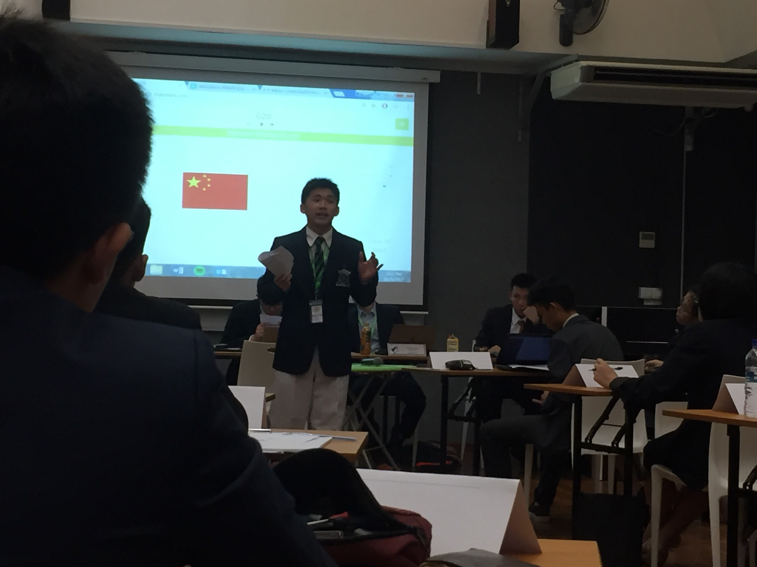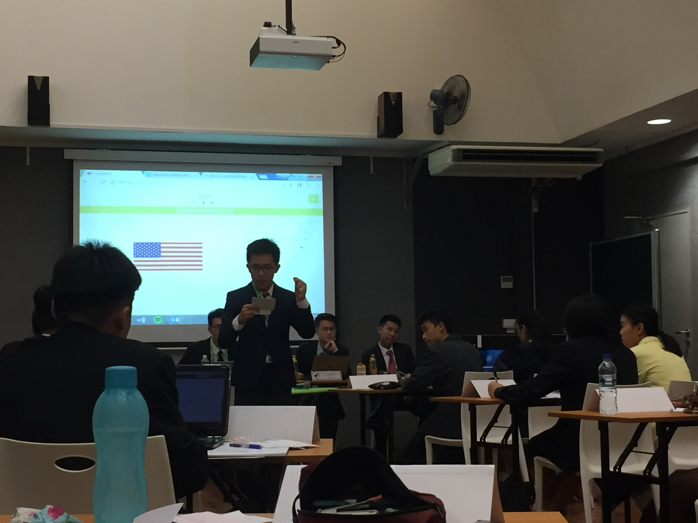By Danial Asyraaf Idris, Al Jazeera English
World leaders discuss regulations and strategies in the fight against climate change
The annual G20 summit today saw the heads of some of the world’s largest global economies affirm their commitment to dealing with the issue of climate change. The delegates spearheading this discussion – China, Russia, South Korea, the European Union and its member states, primarily Germany – were united in their concern over the effects of climate change and the solutions they were willing to implement to solve this crisis.

The suggested short-term measures include an emissions trading system proposed by the delegate of South Korea and others. It is claimed that this system will work as it is able to find the most cost-effective ways of reducing emissions without significant government intervention. This system allows for gradual reduction or the controlled increase of carbon emissions to keep carbon emissions at a manageable level, as well as setting targets, so as to limit the growth of carbon emissions in the long-term.
However, it is unlikely that this system will work as it encourages the industries that are most reliant on coal, oil and gas to carry on just as before.It is possible and possibly more affordable to purchase cheap offsets or carbon credits rather than to switch from fossil fuels to renewable energy.
| Emissions trading system
Under the ‘cap and trade’ principle, a cap on the total emissions allowed within the scheme is set, and allowances adding up to the cap are provided to the companies regulated by the scheme. The companies are required to measure and report their carbon emissions and to hand in one allowance for each tonne they release. Companies can trade their allowances, providing an incentive for them to reduce their emissions. |
The US delegate also cautioned the other delegates about the implications of such a cap-and-trade scheme on small and medium enterprises, and said that an increase in energy prices due to such regulations could affect the poor disproportionately. In response, the delegates of China, the EU and South Korea reassured the US that the pursuit of the emissions trading system will be gradual, and that regulations are “not meant to hinder economic growth”, but to limit carbon emissions.
It was suggested by the delegate of the UK that an international body should be created to facilitate this trading system to enhance transparency. However, in the interest of maintaining individual countries’ sovereignties, the council eventually settled on local enforcement instead.

The general consensus regarding solutions in the long-term was that countries needed to focus on reducing their dependence on fossil fuels and increasing production of renewable energy to make up for this reduction. The delegate of South Korea asserted that fossil fuel usage cannot be reduced immediately as much of the world’s economic activity is dependent on it, especially in less economically developed countries (LEDCs).
There seemed to be some tension in the council regarding this issue as the delegates of oil-exporting states, namely Russia and Saudi Arabia, expressed concern about the proposal to reduce dependence on fossil fuels, citing the fact that their national revenue is highly dependent on the oil trade.
Other delegates suggested that Saudi Arabia should focus on economic diversification to other revenue sources like tourism and attracting foreign investment. It was also suggested that states like Russia invest in diversification of energy sources to renewable energy sources like wind, solar and hydroelectricity.
The plunging price of oil, coupled with advances in clean energy and resource conservation, offers oil-trading countries a real chance to reform their energy policies by shifting their focus towards investing in renewable energy instead of exporting oil.
While the majority of the council made significant progress in reaching a consensus on measures to combat climate change, there was significant pressure on the US to do more to address climate change.
Interestingly, the delegate of the USA labelled the proposed regulations, such as the emissions trading scheme and carbon tax, “excessive and draconian” and an “undue burden on businesses”. He called for a streamlining of regulations by eliminating the unnecessary ones. This is a major departure from the previous stances that the US had taken on the issue of climate change.
Previously, the USA had spearheaded the fight against climate change. Now, however, it seemed that this has taken a back seat, the delegate now prioritising short-term economic interests instead. In fact, the delegate of the EU confronted the US and “strongly urged the US to uphold current climate change commitments and to take a more proactive stance on environmental protection.

This shift in US’s stance might be explained by the fact that the new Trump administration’s attitude toward climate change is more volatile – the Republicans who now control both Houses of the US Congress have a more pro-business stance, not wanting to hinder economic growth for the sake of environmental protection.

